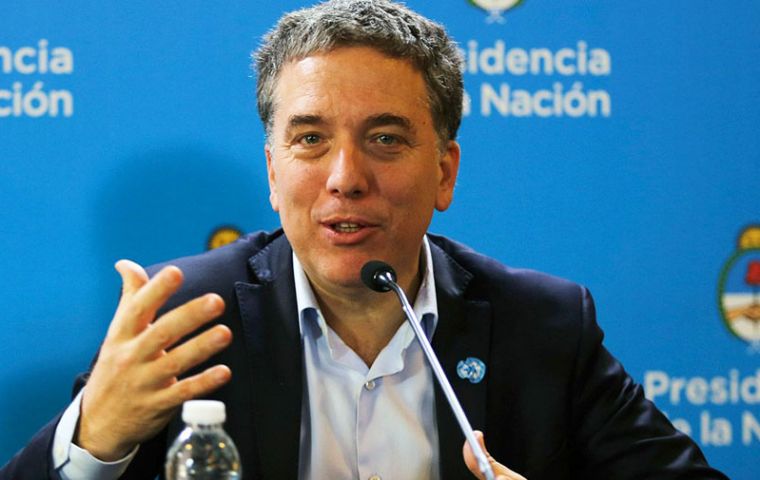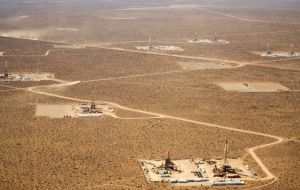MercoPress. South Atlantic News Agency
Argentine oil and soybean industries exempt from latest taxes on imports
 Those industries will be exempt from an import tax that the government has raised a week ago to 2.5% in order to boost the tax revenue, minister Dujovne confirmed
Those industries will be exempt from an import tax that the government has raised a week ago to 2.5% in order to boost the tax revenue, minister Dujovne confirmed  Argentina is developing unconventional hydrocarbons resources in shale rich the Vaca Muerta deposits, and is also the world's top soy meal exporter
Argentina is developing unconventional hydrocarbons resources in shale rich the Vaca Muerta deposits, and is also the world's top soy meal exporter Argentina will exempt an import tax on goods that are used in the production of exports, such as soybeans and machinery to develop unconventional hydrocarbons in the Vaca Muerta shale play, Treasury Minister Nicolas Dujovne said in a radio interview on Friday.
Those products will be exempt from an import tax that the government has raised a week ago to 2.5% in order to boost the tax revenue as the South American nation deals with a severe economic crisis and annual inflation of 55%, a spokesperson for Dujovne confirmed.
“So as not to hinder this process (of exporting) and not to damage the competitiveness of companies, we are exempting those products,” Dujovne said with Argentina’s Radio Mitre.
“Even in the midst of this fiscal scarcity that we have and that sometimes leads us to raise some rates, we want to preserve it because what is happening there (in Vaca Muerta) is very, very powerful and is very demanding of machinery,” Dujovne added about the decision to exempt imported machinery for the purpose of development and production of unconventional hydrocarbons at Vaca Muerta, one of the world’s largest reserves.
Argentina, the world’s top soy-meal exporter, is seeking to reduce its public spending and increase revenue to meet its obligations to the International Monetary Fund (IMF) through a US$ 56.3 billion stand-by agreement signed in 2018.
Dujovne said Argentina would likely not need to renegotiate the agreement with the IMF next year when the disbursements are finished.
“Argentina is going to have a financial program small enough to probably not need a new program with the Fund after the end of the stand-by program that we have until next year,” he explained.




Top Comments
Disclaimer & comment rulesCommenting for this story is now closed.
If you have a Facebook account, become a fan and comment on our Facebook Page!